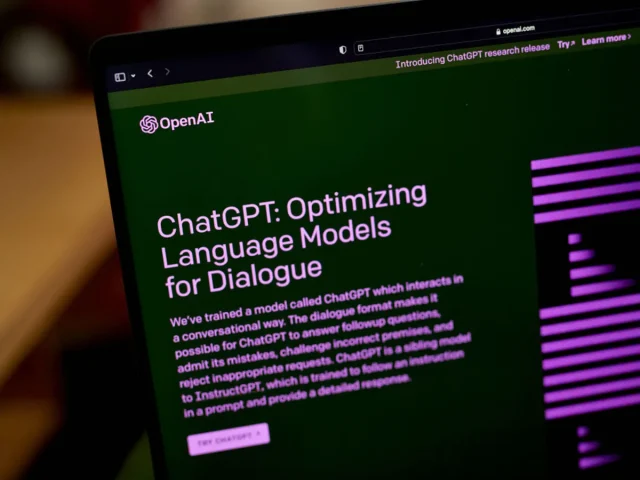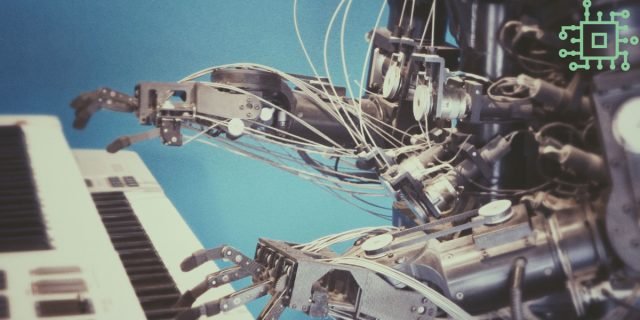In recent months, you must have heard about the tool called ChatGPT. So, what is it?
ChatGPT is an open-source natural language processing (NLP) platform that enables developers to create powerful chatbot applications. It is based on the popular OpenAI GPT-3 model and uses transfer learning to help developers quickly and easily create intelligent chatbot conversations.
The tool strives to deliver a fast, accurate, and engaging conversational experience to users. It can learn from conversations and respond in a natural language, providing a more natural and engaging experience.
Additionally, it can be used to generate text, such as news articles or poems, and can be used to generate natural language summaries of longer pieces of text.

Today, let’s explore about Artificial Intelligence!
What is AI tool and its benefits?
AI (Artificial Intelligence) tools are computer applications that are designed to replicate human cognitive functions such as problem-solving, reasoning, and decision-making. AI tools are designed to analyze data and make recommendations to help humans in a variety of tasks.
The primary benefit of AI tools is that they can make decisions and complete tasks faster than humans. AI tools are also able to make decisions based on more data than humans can process. This can help businesses make better decisions and improve efficiency.
AI tools can also help automate repetitive tasks and reduce the need for manual labor. This can save businesses time and money, as well as reducing the risk of human error. AI tools can also provide insights that might be difficult for humans to uncover, such as patterns in customer behavior or market trends.
AI tools also allow businesses to process large amounts of data quickly and accurately. This can help businesses make better decisions based on more data than would otherwise be possible. AI tools can also help with customer service, making it easier to respond to customer inquiries quickly and accurately.
Overall, AI tools can help businesses save time and money, as well as make more accurate decisions based on more data than would otherwise be possible. AI tools can also help automate repetitive tasks and provide insights that humans may not uncover.
Top 10 AI tools that you may not know (yet)
1. IBM Watson: IBM Watson is an AI platform that uses natural language processing and machine learning to help organizations extract meaningful insights from data. It is expected to be the leading AI tool in 2023.
2. Microsoft Azure Machine Learning: Microsoft Azure Machine Learning is a cloud-based AI platform that enables developers to easily build and deploy machine learning models.
3. Google Cloud AI Platform: Google Cloud AI Platform is an AI platform that enables developers to build, train, and deploy machine learning models in the cloud.
4. Amazon AWS AI Platform: Amazon’s AWS AI Platform is a cloud-based platform that allows developers to easily create, train, and deploy AI models.
5. TensorFlow: TensorFlow is an open-source deep learning library developed by Google. It is expected to be the most popular deep learning library in 2023.
6. OpenCV: OpenCV is an open-source library for computer vision and machine learning. It is expected to be increasingly used in autonomous vehicles and robotics in 2023.
7. Keras: Keras is an open-source deep learning library developed in Python. It is expected to be increasingly used in application development in 2023.
8. Scikit-learn: Scikit-learn is a machine learning library in Python. It is expected to be increasingly used in data analysis and application development in 2023.
9. PyTorch: PyTorch is an open-source machine learning library developed in Python. It is expected to be increasingly used in application development in 2023.
10. Cognitive Services: Cognitive Services is a suite of cloud-based AI services from Microsoft. It is expected to be increasingly used in application development in 2023.
The future of AI tools?
The future of AI tools is promising, as they have the potential to revolutionize many aspects of our lives. The pros include increased efficiency, accuracy, and improved decision-making, as well as better customer experiences. AI also has the potential to reduce costs and improve accuracy.
On the downside, AI technology is still nascent and its potential risks need to be considered, such as data privacy and potential job losses.
The ethical implications of AI need to be carefully considered as well. Ultimately, it’s up to individuals, countries, and organizations to decide how to use AI tools responsibly and in a way that brings the most benefit to people.

